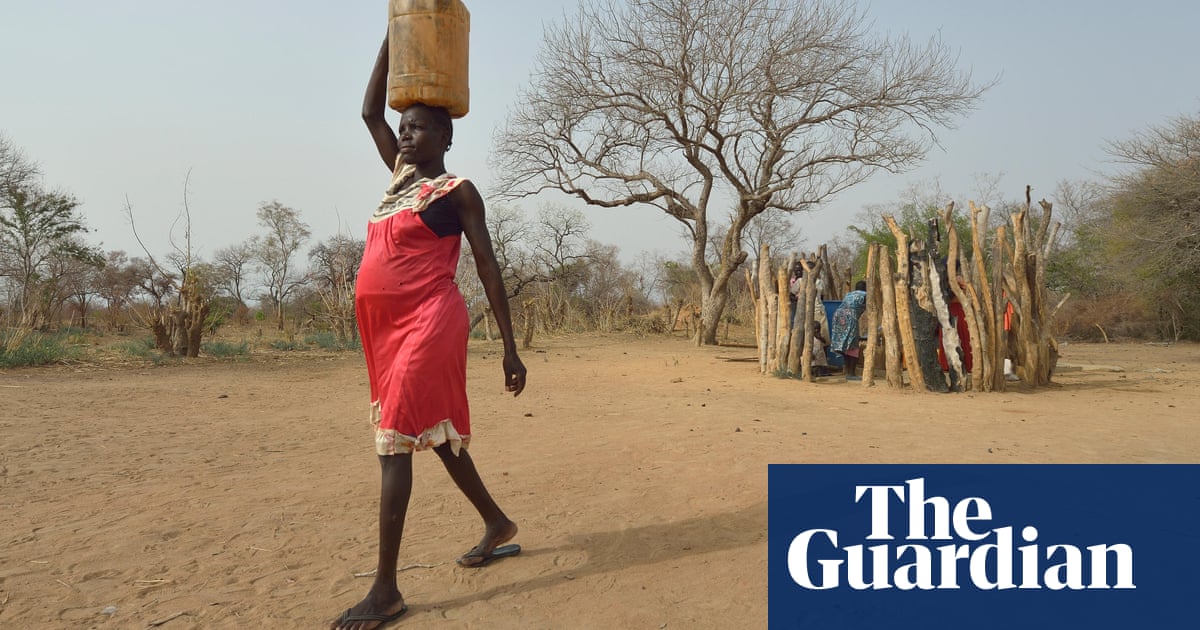
The devastating impact of the pandemic on the world’s poorest countries has brought poverty reduction to a halt and led to a widening income gap with nations in the rich west, the World Bank has warned.
In a report released to coincide with its half-yearly meeting, the Washington-based organisation said half of the world’s 75 poorest nations had seen income per head rise more slowly than in developed countries over the past five years.
Urging governments and the private sector to do more to help tackle what it called a “great reversal”, the Bank said that since 2019 there had been a surge in food insecurity and debt distress.
The Bank’s data showed that one in three countries eligible for grants and concessional loans under its International Development Association (IDA) arm was poorer, on average, than it was on the eve of the Covid-19 pandemic. Not since the last five years of the 20th century had more than half of the poorest countries experienced income per head grow more slowly than in developed countries.
Ajay Banga, the World Bank’s president, will use the bleak findings of the report to press donors – who meet every three years to replenish IDA – to be generous. Final pledges will not be made until the end of 2024 but Banga has already said the needs of poor countries mean the next round of funding should be the “largest of all time”.
Although countries rich and poor were affected by the pandemic, the Bank’s study found the extreme-poverty rate in the most hard-pressed countries was more than eight times the average in the rest of the world. One in four people in IDA countries had to manage on less than $2.15 a day – the global definition of poverty.
“These countries now account for 90% of all people facing hunger or malnutrition,” the Bank said. “Half of these countries are either in debt distress or at high risk of it. Still, except for the World Bank Group and other multilateral development donors, foreign lenders – private as well as government creditors – have been backing away from them.”
More than half of all IDA countries – 39 of the 75 – are in sub-Saharan Africa, while 14, mainly small island states are in east Asia. Eight are in Latin America and the Caribbean, and in south Asia, only India is not an IDA country.
The Bank said 31 IDA countries had per capita incomes of less than $1,315 a year (£1,050), while 33 were fragile and conflict-affected states.
after newsletter promotion
On the positive side, the Bank said at a time when populations were ageing nearly everywhere else, IDA countries would enjoy a growing share of young workers through 2070 – a potential “demographic dividend”. They were also rich in natural resources, had high potential for solar-energy generation, and boasted a large reservoir of mineral deposits that could be crucial for the world’s transition to clean energy.
“The world cannot afford to turn its back on IDA countries,” said Indermit Gill, the World Bank’s chief economist. “The welfare of these countries has always been crucial to the long-term outlook for global prosperity. Three of the world’s economic powerhouses today – China, India, and South Korea – were all once IDA borrowers. All three prospered in ways that whittled down extreme poverty and raised living standards. With help from abroad, today’s batch of IDA countries has the potential to do the same.”
Read More: World News | Entertainment News | Celeb News
Guardian









